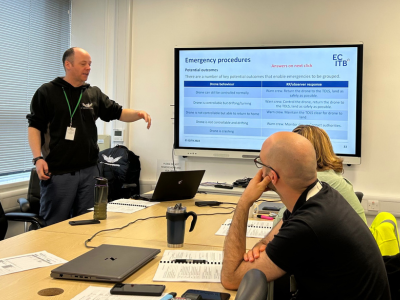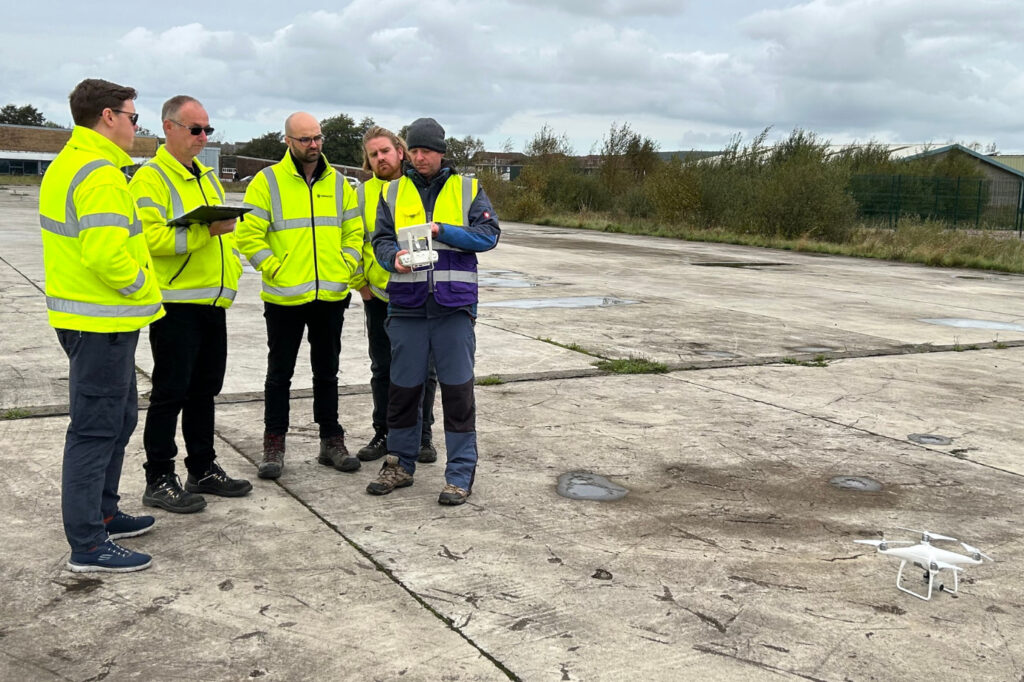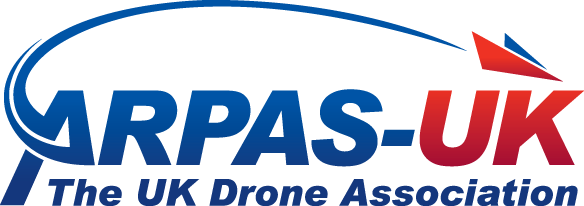In PwC’s latest market research on commercial drones, more than 80% of people said drones can have a significant impact within industry around cost and time savings, carbon reductions, productivity and safety.
However, the Bringing Trust in Commercial Drones report, an assessment of how industry attitudes to drones have changed, revealed only 43% of people feel drones are being used effectively by industry.
The findings followed on from PwC’s Skies Without Limits report a year earlier, which looked at the potential impact of drones on the UK economy.
In that report, the global professional services firm highlighted skills as an area that must be addressed to “unlock drone potential”, and this assessment was echoed in the 2023 report, with 56% saying drone use could be increased by introducing industry specific qualifications.
Creating drone training standards for industry
A few months after this report came out and following the success of a pilot programme, the Engineering Construction Industry Training Board (ECITB) launched the quality-assured Foundation UAS Training Course.
Created in collaboration with the UK Drone Association, ARPAS-UK, alongside a working group made up of industry and drone experts, it develops the knowledge and skills needed to operate drones specifically in industrial environments.
There are two ECITB-approved training providers delivering this course: Global Drone Training and Aviation Systems Group (ASG). Both are ARPAS-UK Members.
ASG, a multi-disciplinary aviation and professional services consultancy, offers the ECITB course from its base near Salisbury, Wiltshire, as well as on location.
Managing Director Adrian Geal said: “The engineering construction industry is a highly regulated and professional space in which drones operate.
“To provide the specialist knowledge around regulations, safety management and practical flying skills, drone operators need to be taught to a higher standard than the more general GVC (General Visual Line of Sight Certificate) qualification.
“This can be achieved through the ECITB syllabus. This ensures a drone operator can provide detailed project imagery outputs whilst meeting the highest standard of safety.”
ASG Chief Instructor Tom Martin added: “Remote pilots who pass this course can go out to industry, where this qualification is recognised as a standard, and bring ‘value added’ to a project.”
Foundation UAS Training Course ‘a meeting of two worlds’
“We start with a slide that talks about a meeting of two worlds,” said Jonathan Carter, Director at Global Drone Training, which was part of the initial working group and helped put together the course content.
“In terms of the drone world, we’re talking about legislation, Civil Aviation Authority, certifications, drone knowledge and data management. We’re merging that with the industry world of site and asset knowledge and procedures, safety training, and proof of competence.
“The main takeaway we make sure they go away with is an understanding and appreciation of how complex operating drones on an industrial site can be and with the knowledge to operate safely.”
Global Drone Training delivers training from its Swansea and Norwich bases but also provides the course on site, such as for Sellafield in Cumbria.
With no previous training standard for flying drones in industry, Global Drone Training Director Elliott Corke says the course has created a “benchmark” that didn’t already exist.
He added: “Employers know people have the right level of skills to come on site and operate a drone if they have this certificate.”
Raising awareness of benefits to industry
Using drones has many advantages, particularly in engineering construction sectors. Exposure to work-at-height risks and other hazardous environments can be significantly reduced through drone use for asset inspections.
However, as the PwC report outlines, 59% of those asked believe drone use could be increased by “improving clarity” on their benefits to industry.
“There needs to be more awareness of what drones can do and how they can be used by industry,” said Elliott.
The week-long ECITB course delivers this awareness through its different classroom and practical modules.
As well as carrying out a practical flight competence test, where operatives pilot a drone in a real environment and capture, store and share viable images, the theory side covers all considerations for operating a drone on an industrial site.
These considerations include how to comply with site policies; the weather; type of drone; environment; data protection; emergency and reporting procedures; risk assessments; pre-flight planning and checks; and human factors.
Find out more about the ECITB UAS Course
Course makes Sellafield inspections ‘safer and faster’


18 January 2024

